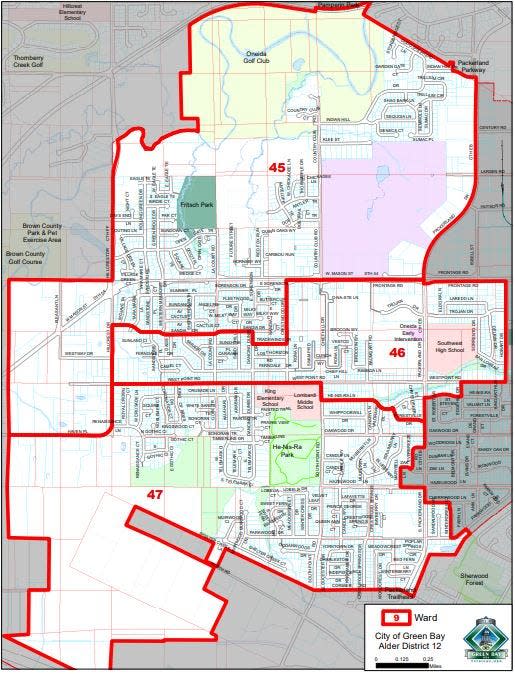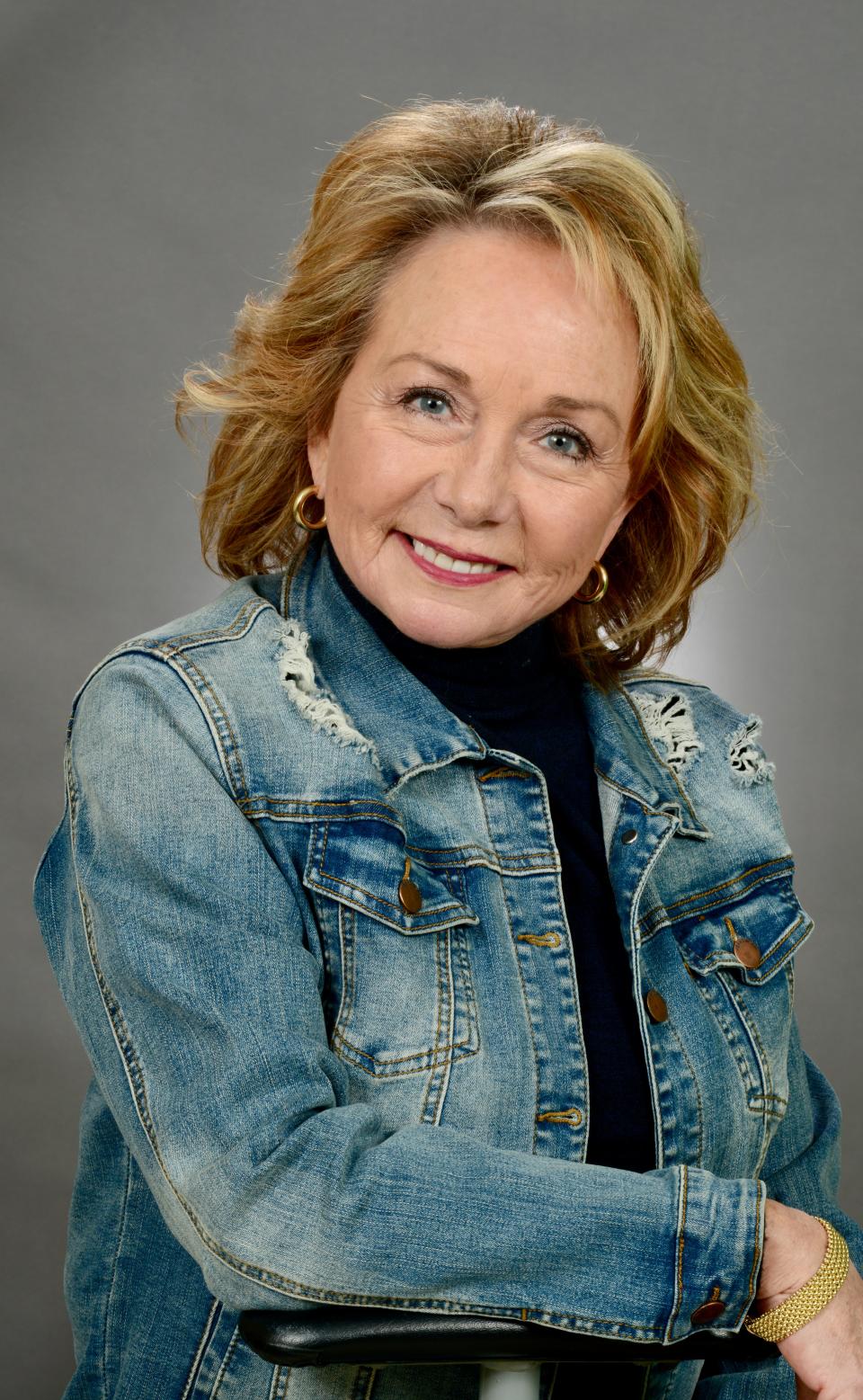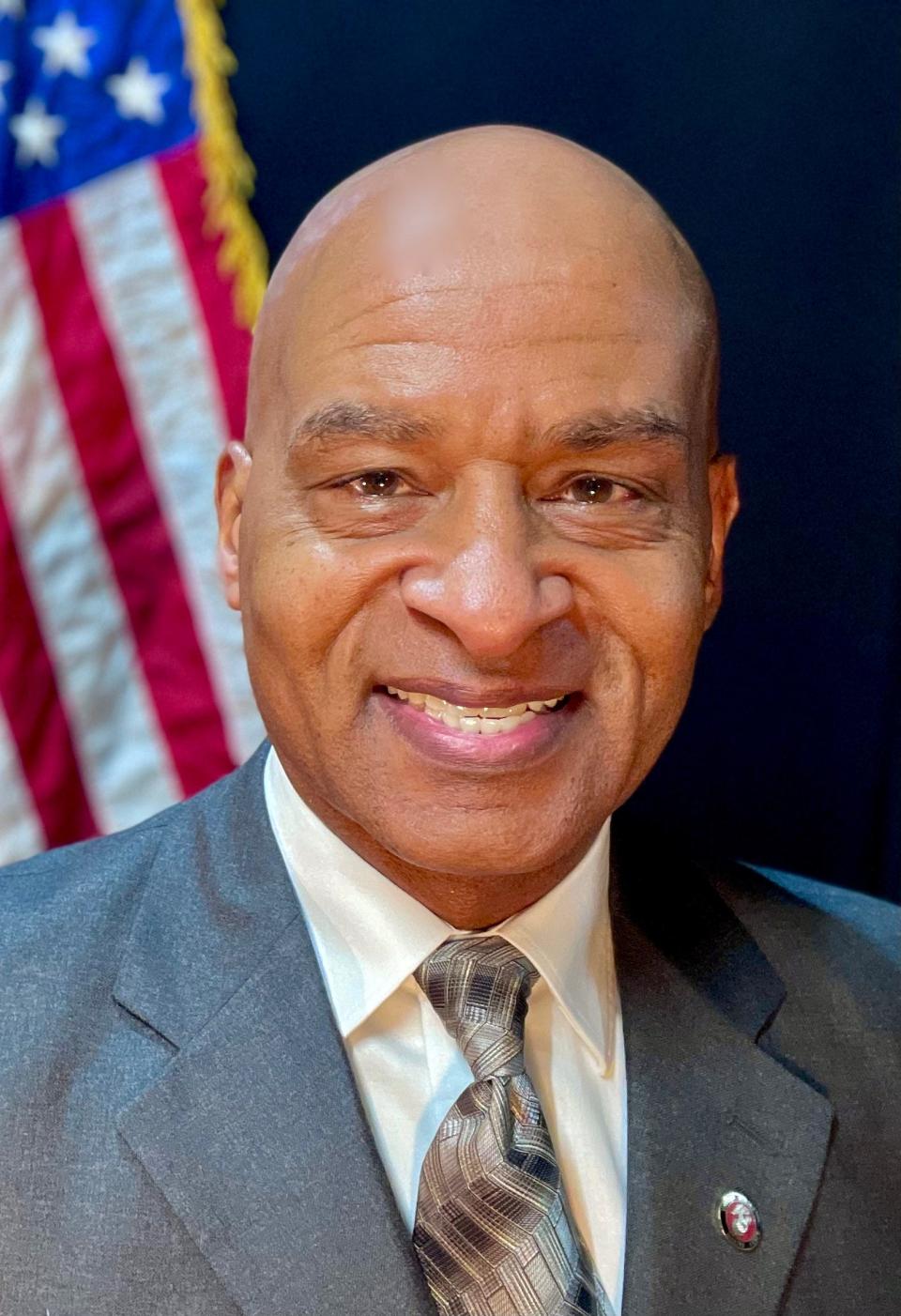Green Bay City Council District 12 election: Bobby Lindsey, Kathy Hinkfuss battle for open seat
GREEN BAY - West Green Bay voters on April 2 will choose a new voice to represent them on the Green Bay City Council for the next two years.
Kathy Hinkfuss and Bobby Lindsey have entered the race to succeed outgoing council member Jesse Brunette, who chose not to run for reelection this year.
Hinkfuss is a small business owner who currently serves on the city's Redevelopment Authority. Lindsey is a retired police officer and current criminal justice instructor. Both tout strong ties and connections to the council district on the far west side of Green Bay.
District 12 covers the city's far west side where Green Bay borders Howard, Hobart and Ashwaubenon. It stretches from the Oneida Golf Club to the north, Hillcrest Drive to the west, Cormier Road to the south and Packerland Drive and Green Bay Southwest High School to the east.

Ahead of the April 2 nonpartisan election, the Press-Gazette requested each City Council candidate provide some background about themselves and answer several questions on issues like funding road construction, spending and housing. Responses were limited to about 200 words. Candidates are listed alphabetically.
For information about registering to vote and polling locations, visit the MyVote Wisconsin website at myvote.wi.gov/en-us.

Kathy Hinkfuss
Age: 60
Occupation: Small business owner and community volunteer
Highest level of education: MBA from the University of Wisconsin-Oshkosh
Campaign website: Kathy Hinkfuss for Green Bay City Council D-12
Why are you running? As a resident of Green Bay for over three decades, I've developed an intimate understanding of our community. My husband and I have called District 12 our home for the past 20 years, giving me firsthand knowledge of the area's needs and concerns. I am well-versed in the issues facing our neighborhood and equipped with the skills necessary to make a positive impact. My commitment to my neighbors and our city is unwavering, and I am dedicated to serving them with diligence and integrity.
What two issues most need to be addressed in Green Bay: Property taxes: Following the recent reassessment, residents in the 12th District have witnessed a notable surge in property taxes. This trend isn't exclusive to District 12, but it poses significant challenges for families and spending priorities. Affordable housing stands as one of our paramount concerns, particularly for younger generations and retirees. We need to foster innovation when planning new developments and streamline administrative processes to facilitate building more homes.

Bobby R. Lindsey
Age: 58
Occupation: Criminal justice instructor
Highest level of education: Master of science in human services management and organizational leadership
Campaign website: Bobby Lindsey for Green Bay
Why are you running? I'm running for Green Bay City Council because my wife and I love this community and its unique characteristics, its quality of life, and the people that give it pride and vibrance as an All American City. We'll spend the rest of our lives here, and I want to contribute my public service (and human services) knowledge and experience to help strengthen families, neighborhoods, schools, and businesses, and to preserve the traditional values and charm of our great city.
What two issues most need to be addressed in Green Bay: I'm concerned about the impact of partisanship in local government, prohibiting effective service to meet the needs of families, businesses, and the best interests of our city. Our council should work hard to be a model for rejecting partisan politics. I'd also like to observe more proactive discussion and action to deal with imminent community safety challenges emerging in other cities, like human trafficking, fentanyl, violent crime, etc. Alders Grant and Eck showed what can be accomplished.
Green Bay is currently studying the feasibility of a transportation utility to fund road construction costs like water or sewer service. Why do you support or oppose this idea to replace the wheel tax?
Hinkfuss: Information on the implementation of a Transportation Utility Fund (TRF) is limited. The current council allocated $100,000 to study the possibility of Green Bay establishing a TRF. The study was approved in December 2023, and the results are expected within six months. In 2019, the City Council voted to enact a wheel tax, which residents pay when registering a car with the DMV. Green Bay typically collects around $2 million annually from this tax, which is directly allocated to road construction. The wheel tax is applied to all vehicle registrations. Implementing the utility fund would entail eliminating the wheel tax and transferring the financial responsibility (utility fee) to property owners. Introducing another fee for homeowners is a significant concern for me. A show stopper.
Lindsey: I've attended several City Council meetings since the fall of 2023, and I am aware that there is no guarantee that a proposed transportation utility will "replace the wheel tax." I was present during the presentation from the company purported to run studies to explore financial scenario outcomes regarding this endeavor, and the subsequent council vote to fund the study to determine the impact on Green Bay. It has been reported that in June (2023), the Wisconsin Supreme Court struck down the town of Buchanan's transportation utility fee as an unlawful property tax, the result of a lawsuit brought by a nonpartisan membership organization consisting of thousands of small businesses, farms, and property owners from the community. Clearly, opposition to this proposal is prudent.
How can Green Bay better address residents' need for affordable housing and the general shortage of housing units?
Hinkfuss: In 2020, the Green Bay Redevelopment Authority received the results of the 2020 housing study. The study showed Green Bay needed to add 140-310 Rental Units a year and 170-375 owner occupied units to keep up with the population growth. As a member of the RDA, we have spent the last 5 years adding housing units to the city. I have come to appreciate that Green Bay is a city in which developers want to build. We are also home to organizations that focus on building new affordable homes for income qualified families. With the (Fort at the) Rail Yard Opening, Green Bay will have added in excess of 330 housing units. We need to continue our focus on development along with making the city easier to do business with.
Lindsey: Affordable housing is an issue impacting many communities throughout the United States, and this complex issue is impacted by federal, state, and local government social and economic decision-making. At best, government decision-making has not effectively addressed root causes of the problem, or at worst, government decision-making has contributed to or exacerbated the problem. Compassionate people agree that affordable housing is a basic need for life, and as such, it demands that local government engage in sound policy making that mitigates perpetuation of circumstances and conditions that contribute to the problem. Governments must engage in fiscally responsible spending (and responsible spending cuts) to address housing needs, particularly during crisis situations.
Almost any significant budget cut will involve personnel cuts, which impacts city services. If you want to cut property taxes, what services should be cut to do so?
Hinkfuss: Implementing budget cuts and maintaining essential services are not mutually exclusive. Cuts can and should occur through the improvement and redefinition of work processes. If reductions are necessary, I would turn to the department leaders & staff for ideas, given their close involvement in daily activities. I would encourage department leaders to identify areas for improvement and assess whether processes can be streamlined to achieve the same outcomes with fewer steps. I would also evaluate the balance between positions directly serving taxpayers and those supporting such services. It's essential to assess whether the current ratio is sensible. As your alder, I am committed to ensuring that essential city services remain intact. Cutting services is not an option.
Lindsey: This question would be best answered by city residents, as all government funds belong to the taxpaying citizens. If city services are to be cut, residents should be regularly afforded complete, timely transparency of all aspects of government spending policies, practices and behaviors. Such transparency would allow for informed decision making by the residents funding local government. Government regularly seeks resident referendum approval for spending, but residents are rarely, if ever, sought to approve proposed spending cuts. Referendums for spending (or spending cuts) should always allow for balanced pro and con considerations for residents. If need be, nonpartisan or bipartisan audit data should be required and expected.
Green Bay's recent population growth has been driven by our Hispanic, Black, Native American, biracial and Asian communities. Yet recent Wello surveys show nearly one-third of residents feel like Green Bay does not accept people with different ideas. How can the Green Bay City Council help increase acceptance and well-being as we grow?
Hinkfuss: Actively listen, be curious & ask questions to understand the perspectives and experiences of individuals from cultures different from our own. As leaders on the City Council, it is our responsibility to create safe and welcoming spaces in chambers and committee meetings where all voices are heard and respected. Communication is key in addressing the real fears experienced by minority communities. It's our responsibility to make people feel safe, valued & heard. Meeting with leaders of minority communities allows us to gain insights, address concerns, and build meaningful relationships. By celebrating our differences and recognizing the unique contributions of each culture, we can foster a sense of belonging and promote unity within our community.
Lindsey: With respect to the noted survey, as a black male resident, I have never in my entire life been surveyed about my feelings of being accepted or rejected in any community. It's never been a thought. I see Green Bay as a wonderfully diverse community that is steeped in Midwest-friendly values and traditions. I'm running for City Council because I feel overwhelmingly welcomed here, and I enjoy all of the diversity within this community that I hope to serve. I recognize that every human being has "different ideas," and that focusing on differences rather than commonalities leads to division and angst. The Green Bay City Council (and all residents) can increase acceptance of others by continually celebrating the famously welcoming atmosphere and culture that is genuinely Green Bay, Wisconsin.
Contact Jeff Bollier at (920) 431-8387 or jbollier@gannett.com. Follow him on Twitter at @JeffBollier.
This article originally appeared on Green Bay Press-Gazette: Green Bay City Council District 12 election: Lindsey faces Hinkfuss

